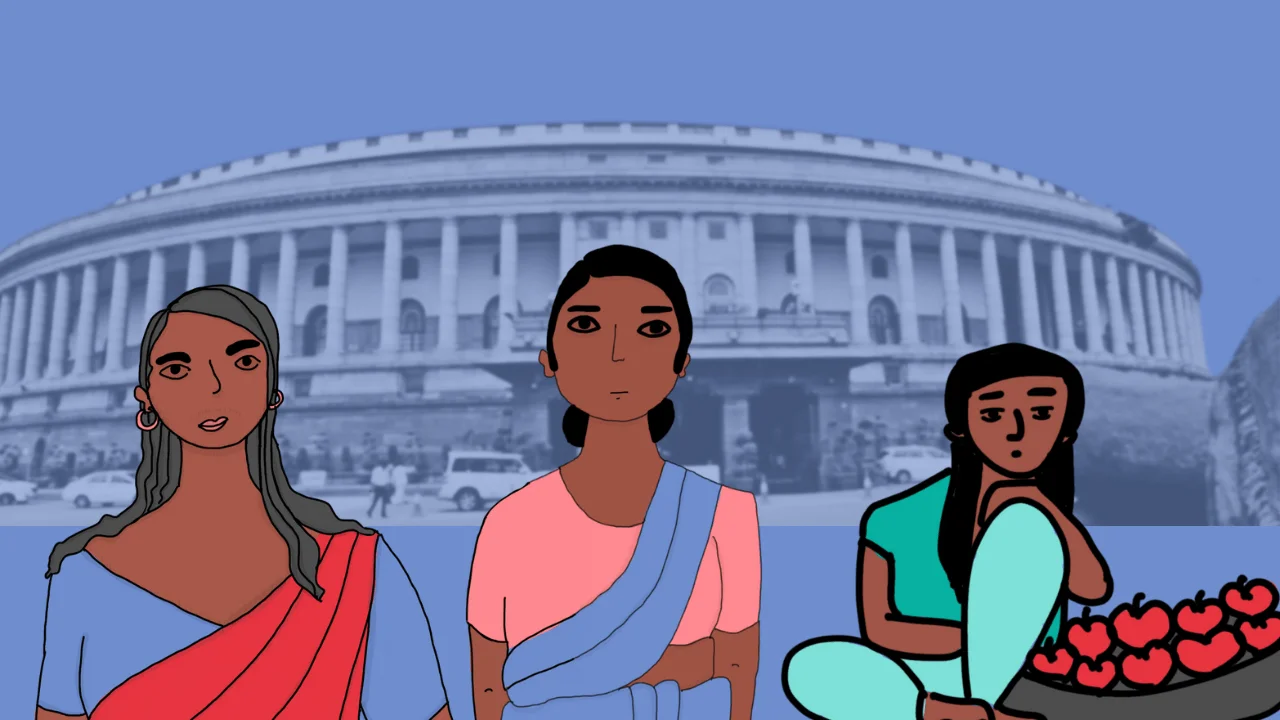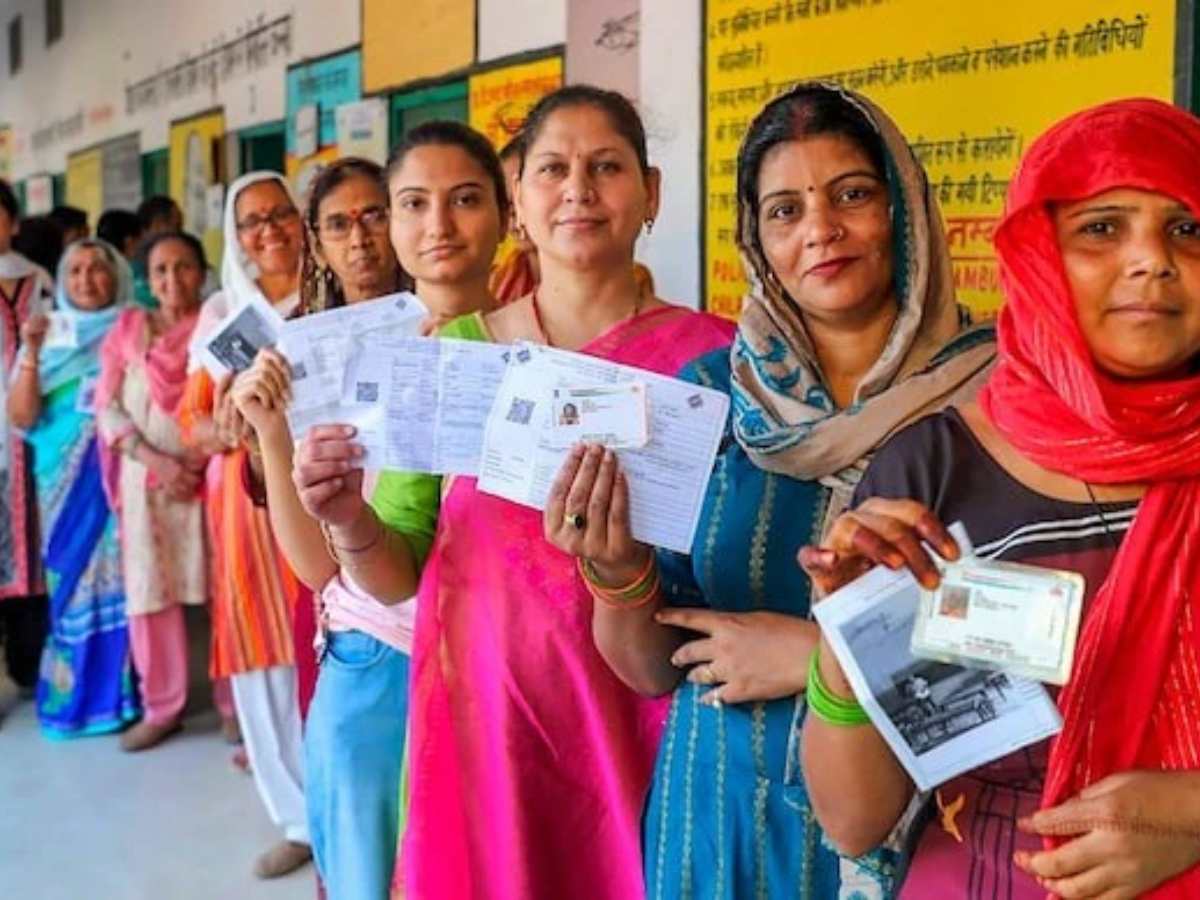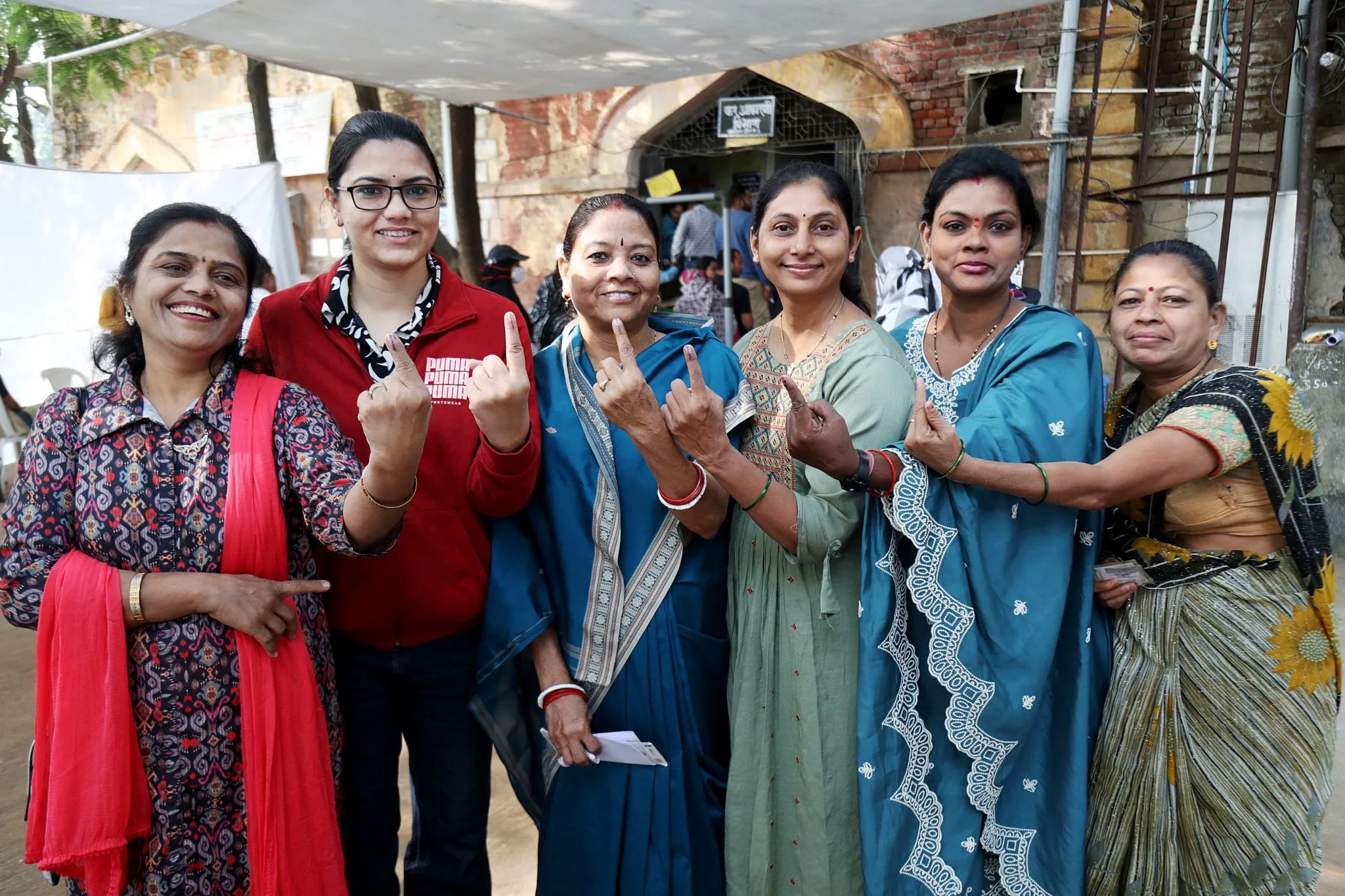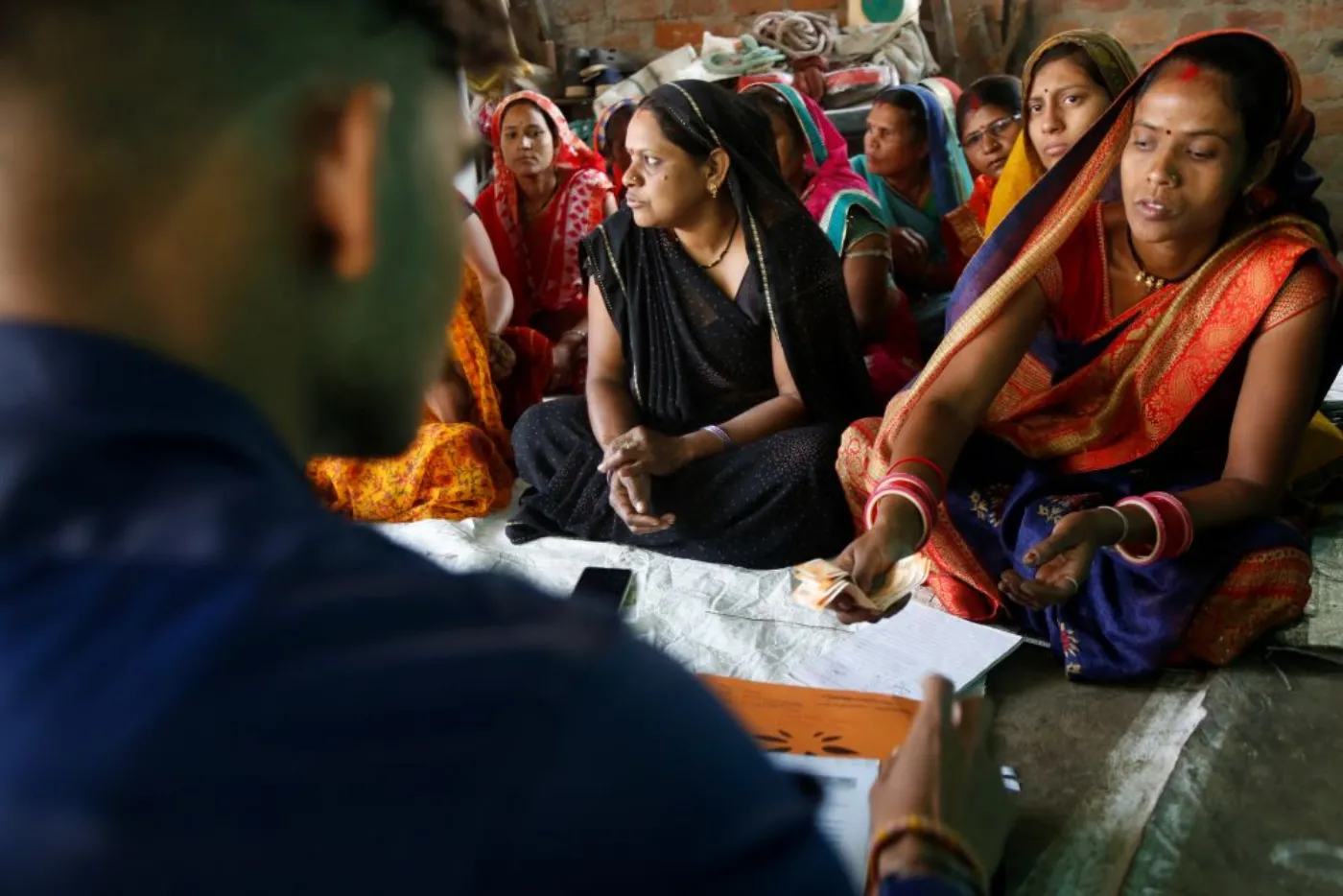In the narrow lanes of Delhi’s neighborhoods, where the aroma of street food blends with the bustle of daily survival, women like Indravati carry the weight of broken promises. During the February 2025 Delhi Assembly elections, the Bharatiya Janata Party (BJP) fuelled the campaign trail with a bold pledge: ₹2,500 a month for women under the ‘Mahila Samriddhi Yojana’, a scheme promoted as a game-changer for economic independence. Branded as ‘Modi ki Guarantee,’ the first payments were expected to reach bank accounts by International Women’s Day, March 8, 2025. Yet, in the scorching June heat, the women of Delhi are still waiting, as the scheme has stuck, their trust fraying with each passing day.
The Mahila Samriddhi Yojana targets eligible women aged 18 to 60 years with an annual family income not exceeding ₹3 lakh. They must not be required to pay income tax or hold a government job.
A dream sold, a hope deferred
The Mahila Samriddhi Yojana was the BJP’s response to the Aam Aadmi Party’s (AAP) Mahila Samman Yojana, which offered ₹2,100 monthly. With the BJP sweeping 48 of 70 seats, the promise of ₹2,500 resonated deeply, particularly with women from low-income families who viewed it as a lifeline. Chief Minister Rekha Gupta announced the scheme’s approval on March 8, committing to a ₹5,100 crore budget and a registration portal. However, months later, there’s no portal, no payments, and no clear answers.
‘I study at Delhi University and tutor my neighbor’s kids to cover my traveling and other expenses because I can’t depend on my family. They’re already dealing with financial stress in this inflation. The scheme put a smile on my face like many others, and I believed the government, but now I feel played,’ Garima from Nangloi said. Deepa, 28, a house help in the societies of Rohini, explains how vital the financial assistance is for her. ‘I have a son who keeps falling ill, and his medical expenses are very high. Most of my earnings are spent on his medicines. This promise gave me hope that I would get some relief, but I got nothing.’
‘I study at Delhi University and tutor my neighbor’s kids to cover my traveling and other expenses because I can’t depend on my family. They’re already dealing with financial stress in this inflation. The scheme put a smile on my face like many others, and I believed the government, but now I feel played,’ Garima from Nangloi said.
‘I go from house to house for cleaning to pay my grandson’s school fees so that he can attend a good school and stand on his own feet. For his future, I have to work at this age,’ says 48-year-old Indravati from Old Chandraval. ‘₹2,500 ayenge, ye sochkar is buddhe sharir ko thodi tasalli mili thi par ab ye bhi dhokha hi mila hai,’ she added. From Old Chandraval to Rohini, women are expressing the same frustration, their dreams of financial relief fading.
Voices from the ground
The delay has sparked anger, not only among women but also among opposition leaders. AAP leader and former CM Atishi, now Leader of Opposition, doesn’t hold back. ‘Modi ji stood on stage and promised ₹2,500 for Women’s Day. It’s now June, and women are still waiting,’ she stated at a press conference in May 2025. ‘This isn’t just a delay—it’s a betrayal.’
‘The BJP had promised ₹2,500 to Delhi women in its government’s first Cabinet meeting. Prime Minister Narendra Modi himself said during a rally in Dwarka that Delhi’s women would receive ₹2,500. Now, the BJP is going back on its word,’ said the AAP’s women’s wing chief Sarika Choudhary during a protest against the BJP government for failing to provide the ₹2,500 monthly aid, near Jawaharlal Nehru Stadium on Saturday.
Devendra Yadav, Delhi Congress president, calls the scheme a hollow gesture. ‘They promised empowerment, but most women won’t even qualify. It’s a cruel trick on Delhi’s 71 lakh women voters,’ he said in a recent interview. Social media, especially X, is abuzz with similar sentiments. One user posted, ‘BJP’s ₹2,500 for women? Vanished like their other promises.’ Another wrote, ‘Delhi’s women deserve better than empty words.’
The government’s side
BJP leaders insist that the scheme is still in progress. At a Mahila Morcha event in March, CM Rekha Gupta said, ‘We’ve set aside ₹5,100 crore, and I’m personally overseeing the rollout. The portal will be ready soon.’ But with no portal launched and eligibility rules still unclear—rumors suggest only women aged 18 to 60 with incomes below ₹3 lakh qualify—the government’s assurances sound hollow.
AAP leader and former CM Atishi, now Leader of Opposition, doesn’t hold back. ‘Modi ji stood on stage and promised ₹2,500 for Women’s Day. It’s now June, and women are still waiting,’ she stated at a press conference in May 2025. ‘This isn’t just a delay—it’s a betrayal.’
Delhi BJP chief Virendra Sachdeva pushes back against the criticism. ‘The opposition is spreading lies. Our commitment to Delhi’s women is rock-solid, and the money will reach them soon,’ he told reporters. Yet, the lack of a timeline leaves many unconvinced.
The real impact
For women like Rukhsana Begum, a 35-year-old vegetable vendor in Okhla, the delay cuts deep. ‘I was counting on that ₹2,500 to pay for my daughter’s books and uniform,’ she says, wiping sweat from her brow as she sorts tomatoes under the midday sun. ‘We trusted them, but now I wonder if it was all just talk.’
A woman from Krishan Colony, requesting anonymity, shared that her husband drives an e-rickshaw and is the sole earner for their family of four. Frequent police challans, she said, disrupt their tight budget and worsen her mental stress as she struggles to manage rations and bills. ‘When the scheme was announced, it gave me hope and kept me from working as a house help, but this is not in my fate. I will have to work in houses to eat,’ the mother of two said disheartenedly.
Mitali Nikore, an economist who studies welfare programs, sees a larger issue. ‘We still have a very high proportion of women, particularly in regions like Delhi NCR with a high migration rate, who continue to work in very precarious and informal employment. These kinds of cash transfer schemes can provide them with a crucial social safety net.’

She added, ‘The implementation mechanisms should be optimized, there should be minimal leakage, and a robust technological infrastructure must back the cash transfer mechanism. It may be delayed by a few months due to design challenges, which are quite normal when we are talking about a scheme of this scale.’
Similar pattern of BJP Ruled States
Some view the Mahila Samriddhi Yojana as part of a broader trend. AAP’s Priyanka Kakkar points to the BJP’s 2014 promise of ₹15 lakh for every citizen, which never materialized. ‘First, it was ₹15 lakh; now, it’s ₹2,500. They make big promises before elections and forget them after,’ she said at a rally. Similar schemes in other BJP-ruled states, like Madhya Pradesh’s Ladli Behna Yojana, have also faced delays and criticism, raising doubts about Delhi’s program.
As Delhi’s women wait, the Mahila Samriddhi Yojana stands as a symbol of unfulfilled hope. For many, it was more than money—it was a chance to ease the grind of daily life, to pay for a child’s tuition, or to save for a better future. But with no payments and no clear path forward, that hope is slipping away.
‘I believed in “Modi ki Guarantee,”’ Deepa says, her voice heavy but firm. ‘But promises don’t put food on the table. We need the money, not more excuses.’ The women of Delhi are still waiting, their patience tested but their resolve unbroken. Whether the BJP can deliver on its promise remains to be seen, but for now, the silence speaks louder than any campaign slogan.
About the author(s)
Aditya Sharma is a Delhi based freelance journalist, pursuing a Master’s in Convergent Journalism from AJK MCRC, JMI.







